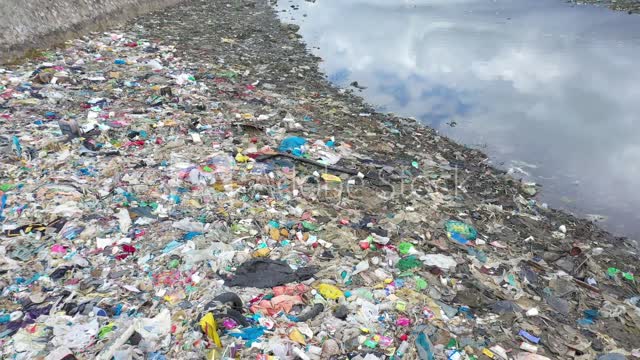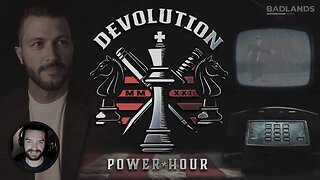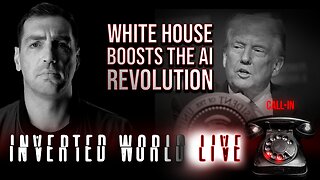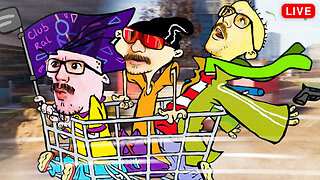Premium Only Content

Hyderabad Startup Has Recycled Tonnes of Plastic Waste into 300 Million FMCG Bottles
Banyan Nation, a Hyderabad-based vertically integrated plastic recycling company, recently announced that they produced over 300 million FMCG bottles from recycled plastic in the past year for major clients like Hindustan Unilever, Shell, HPCL and Reckitt.
In a country where plastic recycling is still largely confined to a fragmented informal sector and tonnes of waste end up in landfills, Banyan Nation has designed a unique system which allows them to collect plastic waste in vast quantities and produce premium-quality recycled polyolefin plastics (PE and PP). This is used in quality packaging applications such as shampoo, detergent and lotion bottles. The venture sources raw plastic waste using its proprietary technology platform which integrates thousands of workers in the informal sector into its supply chain.
After recycling their waste using their proprietary cleaning and decontamination technology, the company generates near virgin quality recycled resins that are used in mainstream consumer packaging applications. Not only do Banyan Nation’s recycled plastics meet United States (US) and European Union (EU) packaging and plastics safety standards, but also ensure that the raw materials they source come from a 100 per cent traceable supply chain.
“Banyan can process over 1,000-1,200 tonnes of plastic waste per month at its recycling facility in Hyderabad. We source scrap plastics from cities across the country. Although historically we have a stronger foothold in the South, we are expanding procurement to North, West, and East in a big way,” says co-founder Mani Vajipey, speaking to The Better India.
Banyan Nation co-founders Mani Vajipey and Raj Madangopal
Coming back home
It was at Columbia Business School, where Mani, who was pursuing an MBA (2011 to 2013), came up with the idea for Banyan Nation. An electrical engineer by training, he also shared an abiding passion for the environment and understood India’s massive non-recycled plastic waste problem. Except for water bottles, he knew that most plastic waste in India was downcycled. The concept of recycling was still in its infancy and relegated to the informal sector.
So, in 2013, he founded Banyan Nation to solve this growing problem. Under the mentorship of Ron Gonen, a pioneer in waste management, he incubated Banyan Nation at Columbia. After a series of phone calls, he was soon joined by his friend and batchmate from the University of Delaware Raj Madangopal. At the time, Raj was working for a startup in Seattle, but like Mani, held a strong desire to come back home and make a real difference.
As part of the university’s incubator programme, Mani and Raj travelled to Hyderabad and Bengaluru to do research. For their research, they spoke to a whole host of stakeholders from managers at large multinational companies and city municipal commissioners to private waste management contractors, informal scrap collectors, rag pickers and kabadiwalas.
After conducting thorough market research over three months, visiting various locations and townships in cities like Hyderabad, and interacting with direct stakeholders, what the two realised was that India was in desperate need of a venture that could streamline the entire process of plastic waste management right from collection to transportation and recycling.
About Us https://bit.ly/3GUPFOa Contact: +919942258153 kvk.subadhra@gmail.com
Thank You Very Much for Sharing YourValuable Thoughts
-
 1:07:47
1:07:47
Dad Dojo Podcast
13 hours ago $0.02 earnedEP40: Conspiracies Revealed
2.52K1 -
 2:10:55
2:10:55
FreshandFit
10 hours agoAndrew Branca And Donovan Sharpe COOK Some Dumb Hoes!
175K94 -
 22:26
22:26
Liberty Hangout
11 hours agoAnti-Trumper Has Complete Meltdown
18.6K43 -
 2:21:24
2:21:24
Badlands Media
13 hours agoDevolution Power Hour Ep. 374: Declassified Intel, Trump’s Traps, and the Optics of Collapse
129K37 -
 2:00:38
2:00:38
Inverted World Live
8 hours agoWhite House Boosts the AI Revolution | Ep. 79
44.7K13 -
 10:23:56
10:23:56
Dr Disrespect
17 hours ago🔴LIVE - DR DISRESPECT - 10 WINS CHALLENGE - BIG ANNOUNCEMENT AT 12PM PT
159K20 -
 1:35:15
1:35:15
Man in America
11 hours ago🚨 ALERT: Hospitals in the U.S. Are KILLING Patients… for Their Organs!
65.8K24 -
 2:36:28
2:36:28
I_Came_With_Fire_Podcast
15 hours agoObama's Treason, Trade War: Season Infinity, and Hunter's Pipe Dream
30.7K1 -
 2:52:51
2:52:51
TimcastIRL
8 hours agoObama Referred To DOJ For TREASON, Criminal Investigation, CIVIL WAR!! | Timcast IRL
232K140 -
 9:43:32
9:43:32
RalliedLIVE
15 hours ago $9.38 earned10 WINS WITH THE SHOTTY BOYS
110K7